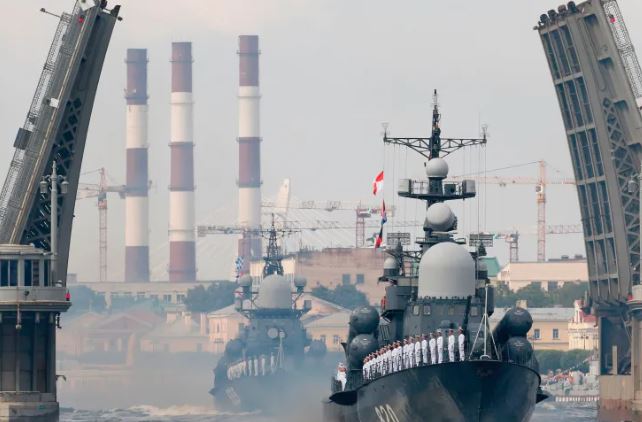Putin claimed the Zircon hypersonic missile as a new weapon that is unrivaled, giving Russia a strategic advantage. In response, the Pentagon assured that it monitors the armed frigate and would be ready to respond.
As tensions with the West rise over the war in Ukraine and heavy casualties among his troops, Russian President Vladimir Putin sent a frigate armed with the country’s latest Zircon hypersonic missile on a transoceanic cruise in a demonstration of force.
According to the description of the Russian president, Zircon is described as a powerful weapon capable of penetrating any existing anti-missile defense by flying nine times faster than the speed of sound at a distance of more than 620 miles.
Putin has emphasized that Zircon gives the Russian military a long-range conventional strike capability, allowing it to hit any enemy target with precision.
Russia’s hypersonic weapons push came as the US has been working on its own conventional rapid global strike capability that envisions hitting an adversary’s strategic targets with precision-guided conventional weapons anywhere in the world within an hour.
Months before ordering the invasion of Ukraine, Putin warned the US and its NATO allies that Zircon-armed Russian warships would give Russia the ability to attack adversary “decision-making centers” in matter of minutes if deployed in neutral waters.
Speaking via video link during Wednesday’s farewell ceremony, Putin again hailed Zircon as a “unique weapon” with no “equivalent in any country in the world.”
In response, the Pentagon said it is monitoring the ship and did not believe it posed a threat that could not be countered.
“We are aware of the reports about the Russian launch of a frigate. We will continue to monitor their activities on a routine basis while maintaining awareness of our operating environment,” said Pentagon spokesman Army Col. Roger Cabiness.
“While we do not comment on specific capabilities or speculate on hypotheses, the Department of Defense remains confident in our ability to deter our adversaries and defend the national security interests of the United States anytime, anywhere,” he insisted.

